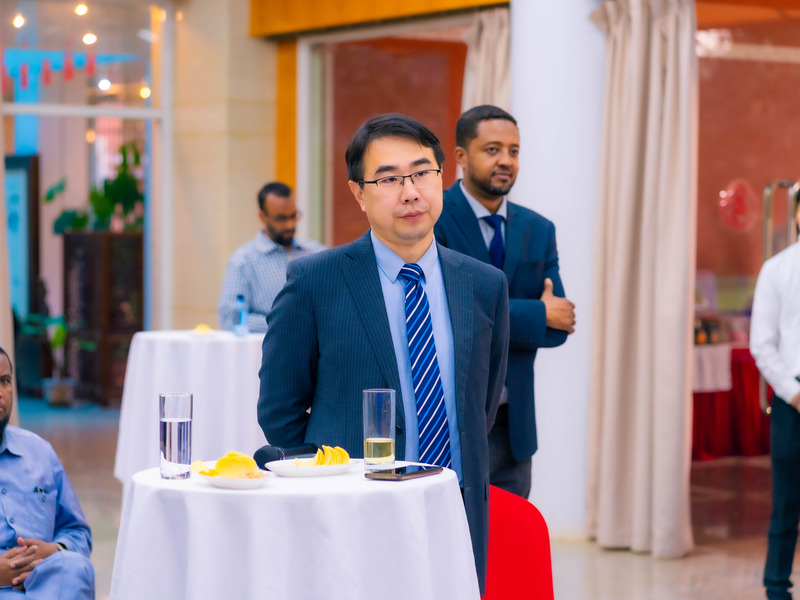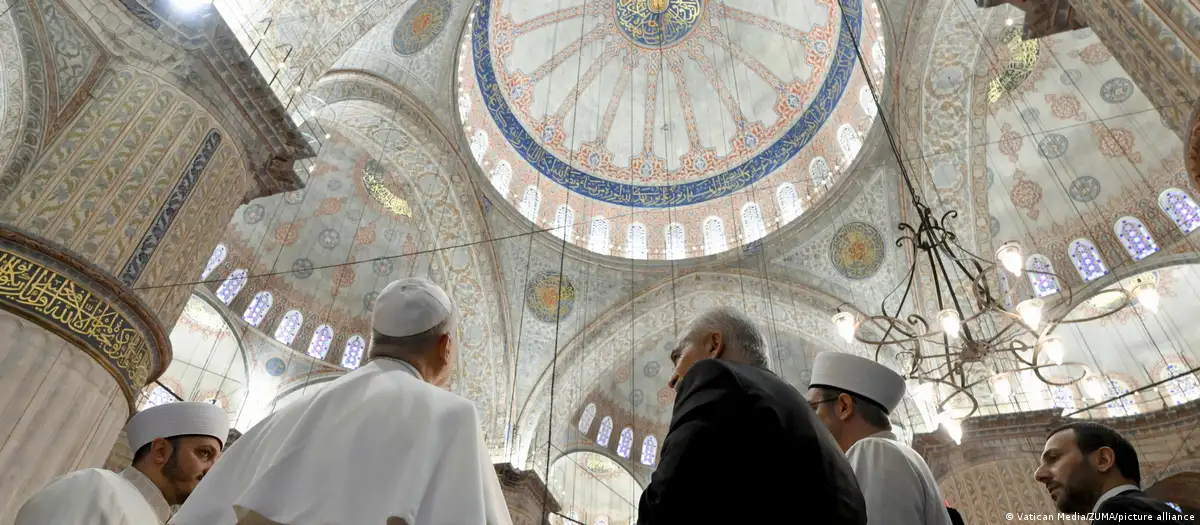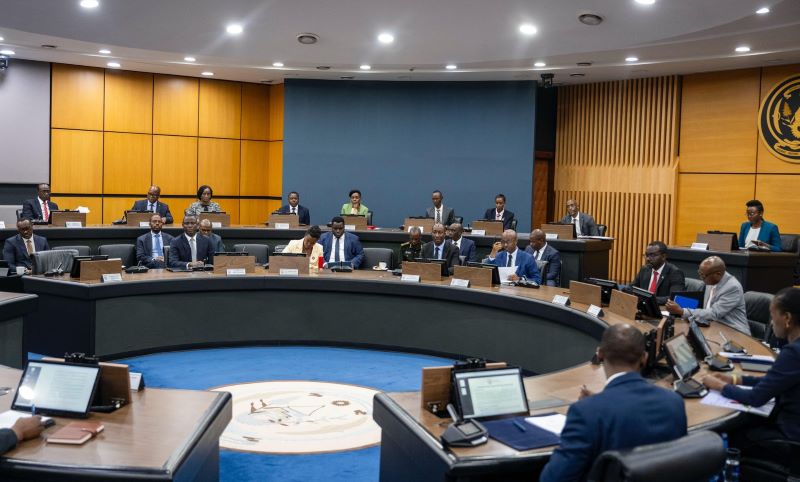Chinese Embassy in Kenya engages Eastleigh business leaders on trade issues
The discussions centred on visa challenges, difficulties in transferring money between Kenya and China, and opportunities for deeper business collaboration.
The Chinese embassy in Kenya held a meeting with members of the Eastleigh Business District Association (EBDA) on Tuesday to discuss various business concerns. The event, which took place at the embassy, was part of efforts to enhance cooperation between Chinese businesses and Kenyan traders, particularly those involved in importing goods from China.
The meeting was facilitated by Kamukunji Member of Parliament Yusuf Hassan and hosted by the Deputy Ambassador of China to Kenya, Zhang Zhizhong.
More To Read
- Luanda Summit: Europe reinforces ties with Africa as competition intensifies
- Africa’s rapid drone expansion promises high-tech warfare but struggles to achieve strategic results
- Why countries struggle to ditch fossil fuels despite rising costs, decades of climate deals
- Africa imports over 70 per cent of its medicines — Local production of ingredients could change that
- Chinese warship in Mombasa for technical stop, cultural exchange
- Chinese companies are changing the way they operate in Africa: Here’s how
Leading the EBDA delegation was its Chairman, Ahmed Abdullahi Yare, who, along with other top members of the association, raised several issues impacting the ability of local businesspeople to effectively trade with China.
The discussions centred on visa challenges, difficulties in transferring money between Kenya and China, and opportunities for deeper business collaboration.
One of the key concerns brought up during the meeting was the visa policy for Kenyan businesspeople travelling to China.
The EBDA leadership noted that many members are issued 30-day visas, which often expire before they can complete their business activities, particularly when importing goods that take more than a month to process and ship. As a result, traders are forced to exit China and reapply for a new visa, disrupting their business operations.
 Chinese Deputy Ambassador Zhang Zhizhong during the meeting that took place at the Chinese embassy in Kenya. (Ahmed Shafat)
Chinese Deputy Ambassador Zhang Zhizhong during the meeting that took place at the Chinese embassy in Kenya. (Ahmed Shafat)
In addition to the short visa periods, EBDA members also raised concerns about the rejection of visa applications without any explanation from the Chinese authorities.
The traders urged the embassy to address these issues to ensure smoother trade relations. According to the business community, these visa difficulties have significantly hampered their ability to conduct business efficiently.
Another issue discussed was the challenge of transferring money from Kenya to China. EBDA representatives noted that there is no Chinese bank operating in Kenya, which complicates the transfer of business funds.
The traders emphasised that the lack of direct banking channels between the two countries makes it difficult to process payments for goods imported from China.
They requested the Chinese embassy to consider ways to facilitate easier financial transactions, including the possibility of establishing a Chinese bank in Kenya.
A significant part of the discussion also focused on the possibility of establishing joint ventures between Kenyan and Chinese businesspeople to set up local manufacturing industries in Kenya.
EBDA members expressed interest in collaborating with Chinese investors to produce goods locally that are currently being imported from China. According to the association, this move could create jobs in Kenya and boost the local economy while reducing dependence on imported products.
Ahmed, speaking to Eastleigh Voice after the meeting, expressed optimism about the outcomes of the discussions. He noted that the Chinese embassy appeared open to addressing the issues raised by EBDA, particularly those related to visas and business transactions.
"We have requested the establishment of a liaison office so that there will be continuous contact between both sides to facilitate trade between ourselves and the Chinese people," said Ahmed.
He also indicated that the embassy had promised to instruct its visa agents to address the concerns of the business community and streamline the visa process to ease travel for Kenyan traders.
Regarding the potential for local manufacturing, Ahmed stated that the discussions were promising.
"This matter of always going to China to import goods might end soon. We want the Chinese people to partner with us to establish industries so that we locally manufacture things that we go out for to China," he added.
 : Members of the Eastleigh Business District Association raise their concerns during the Tuesday meeting. (Photo: Ahmed Shafat)
: Members of the Eastleigh Business District Association raise their concerns during the Tuesday meeting. (Photo: Ahmed Shafat)
Kamukunji MP Yusuf praised the engagement between the Chinese diplomatic mission and local business leaders. He emphasised the significance of the relationship between Kenya and China, noting that many of the products sold in Kenya and the wider East African region are imported from China.
The MP underscored the importance of these discussions in strengthening trade ties between the two countries.
"These are business people who do business with China, which is the manufacturing capital of the world. They bring a great percentage of the products and goods sold in this country and the region," said the MP.
He also highlighted the strong economic partnership between Kenya and China, noting China's growing role as a global economic power.
The meeting between the EBDA leadership and Chinese officials was part of ongoing efforts to improve trade relations. It followed an earlier visit by the Deputy Ambassador to Eastleigh in June, where this meeting was discussed.
Top Stories Today















































